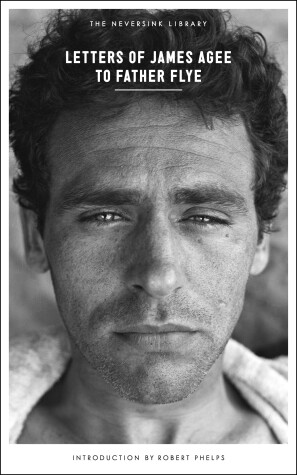Neversink
1 total work
“I’ll croak before I write ads or sell bonds—or do anything except write.”
James Agee’s father died when he was just six years old, a loss immortalized in his Pulitzer Prize–winning novel, A Death in the Family. Three years later, Agee’s mother moved the mourning family from Knoxville, Tennessee, to the campus of St. Andrew’s, an Episcopal boarding school near Sewanee.
There, Agee met Father James Harold Flye, who would become his history teacher. Though Agee was just ten, the two struck up an unlikely and enduring friendship, traveling Europe by bicycle and exchanging letters for thirty years, from Agee’s admission to Exeter Academy to his death at forty-five. The intimate letters, collected by Father Flye after Agee’s death, form the most intimate portrait of Agee available, a starkly revealing account of the internal and external life of a tortured twentieth-century genius. Agee candidly shares his struggles with depression, professional failure, and a tumultuous personal life that included three wives and four children.
First published in 1962, Letters of James Agee to Father Flye followed the rediscovery of Agee’s Let Us Now Praise Famous Men and the posthumous publication of A Death in the Family, which won the 1958 Pulitzer Prize and became a hit Broadway play and film. The collection sold prolifically throughout the 1960s and ’70s in mass-market editions as a new generation of readers discovered the deep talents of the writer Dwight Macdonald called “the most broadly gifted writer of our American generation.”
James Agee’s father died when he was just six years old, a loss immortalized in his Pulitzer Prize–winning novel, A Death in the Family. Three years later, Agee’s mother moved the mourning family from Knoxville, Tennessee, to the campus of St. Andrew’s, an Episcopal boarding school near Sewanee.
There, Agee met Father James Harold Flye, who would become his history teacher. Though Agee was just ten, the two struck up an unlikely and enduring friendship, traveling Europe by bicycle and exchanging letters for thirty years, from Agee’s admission to Exeter Academy to his death at forty-five. The intimate letters, collected by Father Flye after Agee’s death, form the most intimate portrait of Agee available, a starkly revealing account of the internal and external life of a tortured twentieth-century genius. Agee candidly shares his struggles with depression, professional failure, and a tumultuous personal life that included three wives and four children.
First published in 1962, Letters of James Agee to Father Flye followed the rediscovery of Agee’s Let Us Now Praise Famous Men and the posthumous publication of A Death in the Family, which won the 1958 Pulitzer Prize and became a hit Broadway play and film. The collection sold prolifically throughout the 1960s and ’70s in mass-market editions as a new generation of readers discovered the deep talents of the writer Dwight Macdonald called “the most broadly gifted writer of our American generation.”
